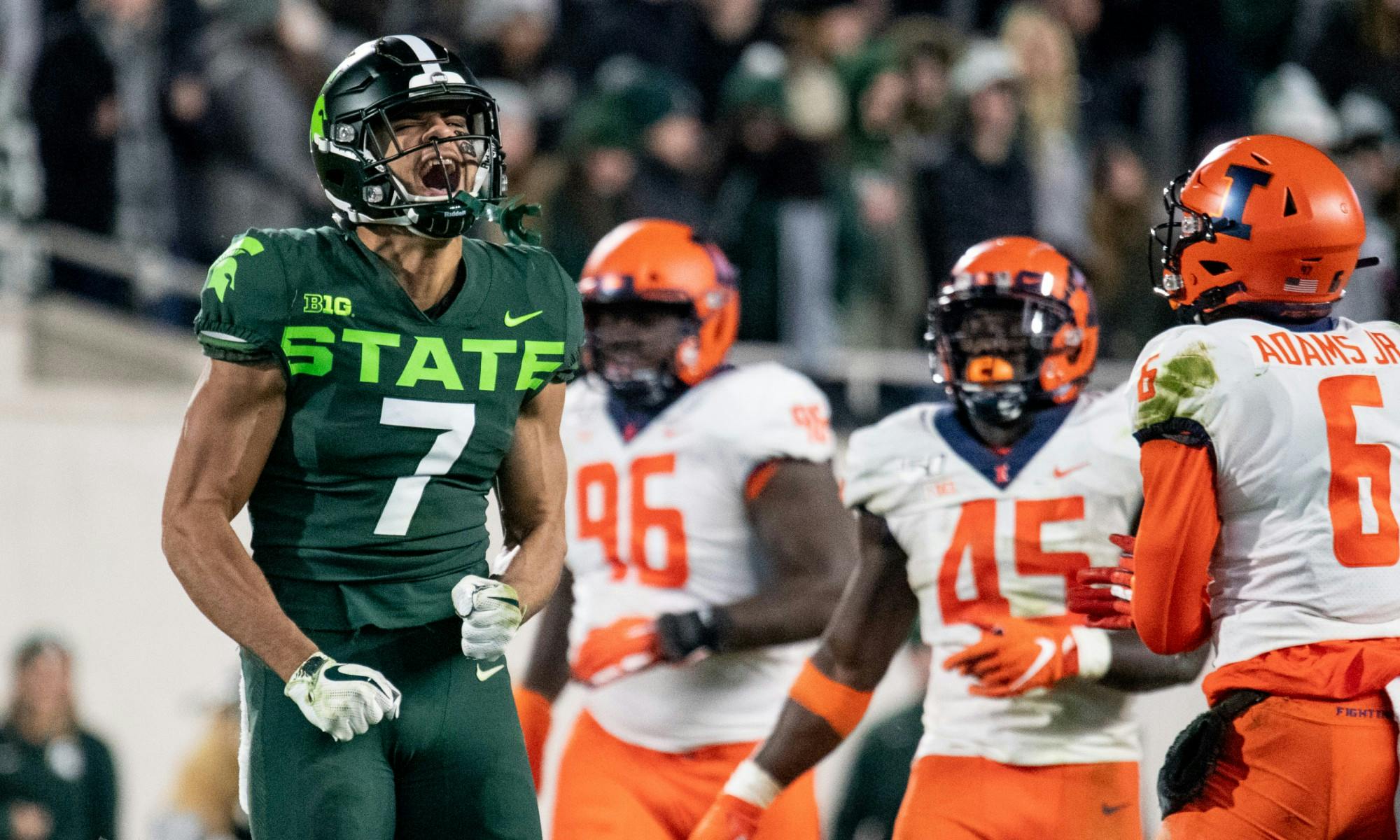The NCAA’s Division I Football Oversight Committee passed a practice plan for the upcoming football season that adds two extra weeks of walk-throughs and another week of workouts that can be with coaches to the original preseason start because of the loss of spring practices due to COVID-19. The NCAA Division I Council will vote on the plan next Wednesday.
NCAA Division I Football Oversight Committee approves extended practice plan

Junior wide receiver Cody White (7) celebrates a catch during the game against Illinois on Nov. 9, 2019, at Spartan Stadium. The Spartans fell to the Fighting Illini, 37-34.
If the NCAA council approves the model, coaches will be allowed to begin formally working with their players for up to eight hours a week in weight rooms, conditioning and less than two hours of film study July 13, assuming their first game is Sept. 5.
On July 24, teams will be able to hold up to eight hours per week for weight lifting and conditioning, six hours per week for walk-through practices with no pads or helmets, but play with a ball will be allowed, and up to six hours for team meetings that can include film study and meetings with coaches. Student-athletes are required to have at least two days off per week.
Beginning Aug. 7, teams can begin their normal preseason practice that has been previously used each season.
“This is the culmination of a significant amount of collaboration in our effort to find the best solution for Division I football institutions,” Shane Lyons, chair of the committee and director of athletics at West Virginia University said in an NCAA press release. “Our student-athletes, conference commissioners, coaches and health and safety professionals helped mold the model we are proposing.”
This decision comes after the NCAA began to allow players to return to campus on a voluntary basis starting on June 1st for conditioning and weight lifting. The Michigan State athletic department announced that they would allow their student athletes to return June 15 to undergo two rounds of testing before being allowed to return to the athletic facilities as early as June 22.
The loss of spring practices were a detriment to teams trying to get ready for the following season, especially for a coach like Mel Tucker who is just beginning his tenure at MSU and is trying to establish a culture. These extra two weeks could be beneficial to the Spartans who lost out on a crucial evaluating period in the spring — as most have not even seen their players take the practice field.
“I haven’t seen a kicker kick, a punter punt, or a wideout or a running back,” Michigan State Special Teams Coordinator and Linebackers Coach Ross Els said. “The one day I saw them work out, I wouldn’t have a clue who they were.”
This proposal will give teams that extra time that they missed out on this spring, according to Lyons.
“Given the impact of the COVID-19 pandemic across the country, we believe this model provides institutions and their student-athletes flexibility to prepare for the upcoming season,” Lyons said in the press release.
READ MORE
Support student media! Please consider donating to The State News and help fund the future of journalism.







